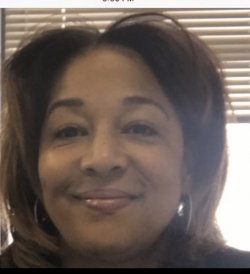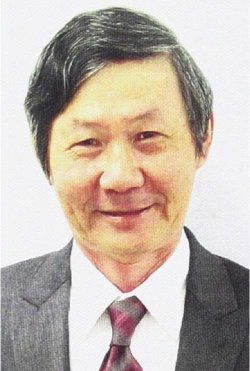Jump to: Administrative Services, Full-Time Faculty, Emeritus Faculty, Adjunct Faculty
Department Chair
Anna Feldman, professor, holds a joint appointment in Linguistics and Computer Science at Montclair State. She received the PhD in Linguistics from The Ohio State University. Her research interests have centered around resource-light morphology and, more recently, automatic idiom recognition. She is the recipient of eight National Science Foundation grants and is the first author, with Jirka Hana, of A Resource-Light Approach to Morphological Tagging.
Department Administrative Support Staff
Our administrative team can be reached at 973-655-7755, via email at chssadmin@montclair.edu, or in person in Schmitt 222.
Kim HarrisonProfessional Services Specialist III/Administrative Service (CWA)
Full-Time Faculty
Libby Barak, assistant professor, received her PhD from the Department of Computer Science at the University of Toronto. Dr. Barak joins the Department of Linguistics and the Department of Computer Science after a post-doctoral fellowship at Rutgers University – Newark, which was funded by the National Institutes of Health (NIH), where she studied morphology acquisition in children with language disorders. Previously, she also held a post-doctoral position at Princeton University where she combined computational and psycholinguistic methods to study how people learn the meaning of words. Her work on computational models of construction learning, mental state verbs, language disorders, and second language learning have been published in computational, psycholinguistic, and cognitive journals and proceedings.
Lauren Covey, associate professor, received her PhD in Linguistics from the University of Kansas in June 2018. Her dissertation, which was funded by grants from the National Science Foundation, the William Orr Dingwall Foundation, and the journal Language Learning, used electroencephalography (EEG) to track the processing of long-distance syntactic dependencies by native speakers and second language learners of English. Dr. Covey’s research takes a cognitive neuroscience approach to second language acquisition, and she utilizes psycholinguistic and neurolinguistic techniques to examine how native speakers and second language learners process sentences in real time.
I am an Assistant Professor of Linguistics at Montclair State University. I held a previous position as a Lecturer of TESOL at the Universidade Federal do Rio Grande do Sul in Brazil. In 2022, I completed my PhD in Applied Linguistics at Northern Arizona University in Flagstaff, AZ. My MA in ELT was completed at Warwick University in Coventry, UK and my BA in English and Portuguese Teaching was obtained from Universidade Federal do Rio Grande do Sul. My research interest lies in corpus-based approaches to register variation, academic discourse, and second language writing. I have published my work in the Journal of English for Academic Purposes, Register Studies, Journal of Reading as a Foreign Language, among others.
Jonathan Howell, associate professor, received the PhD in Linguistics from Cornell University. His research concerns context-sensitive meaning in language, and in particular the role of prosody (e.g. intonation, stress, rhythm) in discourse. He teaches courses including: Introduction to General Linguistics; Phonetics; Phonology; Selected Topics in Linguistics: Prosody; and Phonetics & Phonology. Previously, he also held a postdoctoral fellowship at McGill University and taught at Brock University and Syracuse University.
Jennifer Perlis, associate teaching professor and
ASL program coordinator, received an MA in Teaching American Sign Language (ASL) from the Teacher’s College, Columbia University. Perlis was instrumental in forming the minor in ASL Studies and the ASL interpreting program. She serves as academic advisor for the Montclair State ASL Club and teaches both level 1 and level 2 ASL courses.
Longxing Wei, professor, received the PhD in linguistics from the University of South Carolina.His research interests include contact linguistics, the bilingual mental lexicon, codeswitching,interlanguage, second language acquisition, and literary stylistics. His recent books are Interlanguage: The Abstract Level in Language Acquisition, The Bilingual Mental Lexicon, and Language Contact and Linguistic Aspects of Bilingualism. He has published widely on interlanguage development, sociolinguistic and linguistic motivations for codeswitching, bilingualism, multilingualism, second language acquisition, linguistic outcomes of language contact, and stylistics of English literary works. He teaches courses including Syntax, Semantics, Pragmatics, Advanced Structure of American English, Research Design in Applied Linguistics, Sociolinguistics, Languages in Contact, Cognitive Linguistics, Language and Culture, Current Theories of Second Language Acquisition, Bilingualism, and Translation Theory.
Nicholas Williams, assistant teaching professor, received his PhD in Linguistics from the University of Colorado Boulder. His dissertation, funded by grants from Fulbright, the National Science Foundation, and the Endangered Languages Documentation Program, examined place reference in Kula, a language of Indonesia. Following his PhD, he worked as a postdoctoral researcher on a project funded by the National Science Foundation to document conversation in Kotiria and Wa’ikhana, two languages of northwest Brazil. At Montclair, Dr. Williams teaches courses including Introduction to Linguistics, Structure of American English, Languages of the World, Language and Culture, and Language and Propaganda. Prior to joining Montclair, Dr. Williams taught at CUNY (Queens College, City College, and Baruch College), Dartmouth, and the University of Potsdam (Germany).
Emeritus Faculty
Mary Call received the PhD in General Linguistics from the University of Pittsburgh. Her research interests include second language acquisition, language and culture, and language teaching methodology. At Montclair State University, she taught the undergraduate and graduate courses in second language acquisition theory and the graduate course in language teaching methodology.
Eileen Fitzpatrick received her PhD in Linguistics from New York University. Her research centers on computational approaches to detecting deception in language. She has taught courses in computational linguistics. Fitzpatrick has been the principal investigator on several Department of Defense contracts involving the annotation of narrative data and modeling of classifiers to predict deception, is a co-author of Automatic Detection of Verbal Deception, and the editor of Corpus Linguistics Beyond the Word: Corpus Research from Phrase to Discourse. Prior to coming to Montclair State, she was a member of the technical staff at AT&T Bell Laboratories.
Alice F. Freed received a PhD in Linguistics from the University of Pennsylvania. Her areas of specialization are sociolinguistics and discourse analysis with a focus on language and gender, question use in English, institutional discourse, and language and food. At Montclair State, she taught in a variety of programs from Linguistics to Women’s Studies, the Honors Program, and the General Education program. She is the author of The Semantics of English Aspectual Complementation (Reidel 1979), co-editor with Victoria Bergvall and Janet Bing of Rethinking Language and Gender Research: Theory and Practice (Longman 1996), and co-editor with Susan Ehrlich of “Why Do You Ask?”: The Function of Questions in Institutional Discourse (Oxford University Press, 2010).
Steve Seegmiller received his PhD from the New York University in Linguistics. His research interests include: syntax and Slavic linguistics, and later in Turkic linguistics, lexicography, writing systems, corpus linguistics, sign-language linguistics, and cognitive science/sentence processing. Following his retirement from Montclair State, Steve received two Fulbright awards, one in Moldova and the other in Uzbekistan.
Susana Sotillo received her PhD from the University of Pennsylvania in Educational Linguistics. Her research interests include: code-switching in digitally-mediated discourse and as a learning strategy in foreign languages; corpus linguistics, and second language acquisition. She has taught online courses in language and culture and currently teaches traditional and hybrid courses in mobile language communication, language in society, and corpus linguistics.
Adjunct Faculty
Linguistics (LNGN)/Applied Linguistics(APLN)
Abugharsa, Azza, Ph.D.
Aronovits, Carmelle
Donovan, Brian
Edstrom, Anne, Ph.D.
Williamson, Phillip
Zerby, Zachary
Computational Linguistics
Aharodnik, Katsiaryna
Bangalore, Srinivas, Ph.D.
Mulholland, Matthew
Wilde, Brandon
Wallerstein, Christopher
American Sign Language (AMSL)
Dubow, Allison
Flaucher, Robert
Forestal, Eileen, Ph.D.
Fuller, Kristy
Galuskin, Andrew
Garcia, Rasheda
Hsu, Candice
King, Carmen
Landau, Rachelle
Masilowsky, Bianca
McKeon, Mary
Napoli, Lisa
Negron, Arlenne
Perrone, Marissa
Rozentsvit, Aleksandr
Runyon, Matthew
Schank-Rezach, Elizabeth
Stack, Jennifer
Williams, Cynthia, Ph.D.
Wohlstetter, Jessica
Woods, Carolyn
Zuckerman, Mara

 Kim HarrisonProfessional Services Specialist III/Administrative Service (CWA)
Kim HarrisonProfessional Services Specialist III/Administrative Service (CWA) Cheryln SaylesProgram Assistant
Cheryln SaylesProgram Assistant Caroline HowellProgram Assistant
Caroline HowellProgram Assistant











